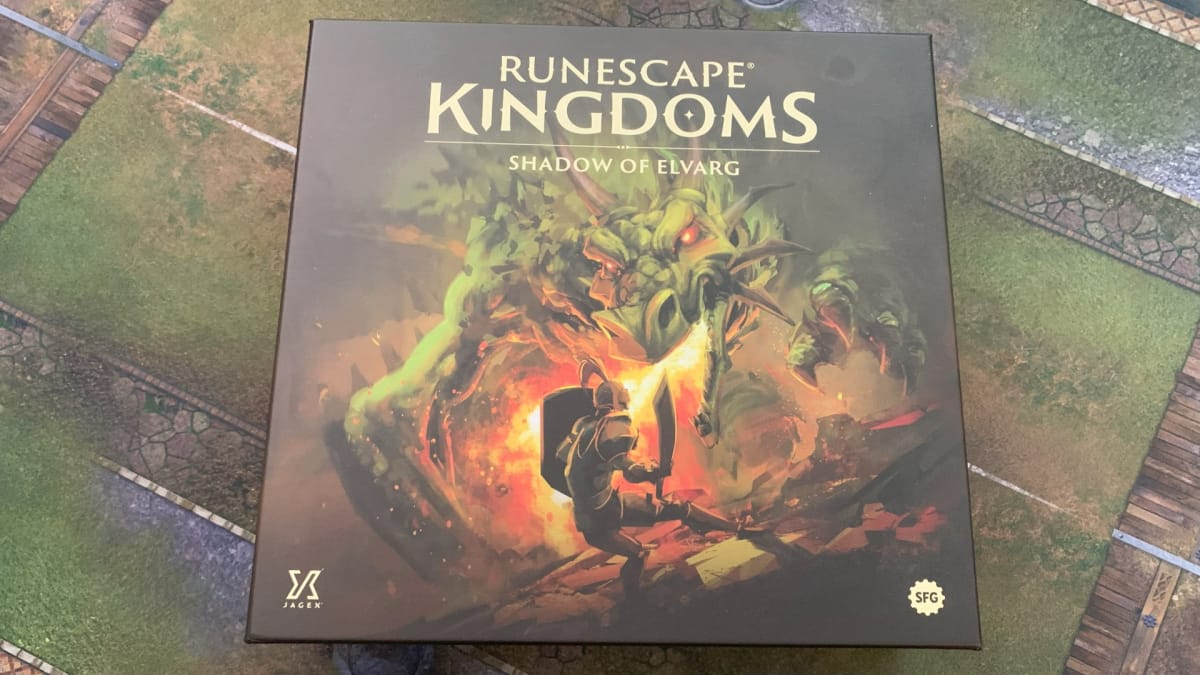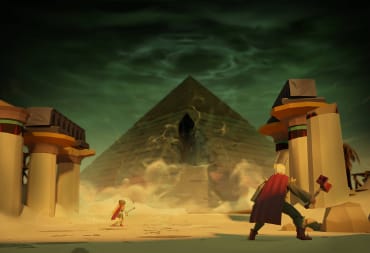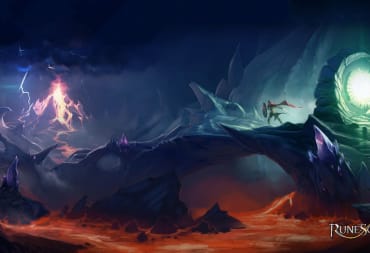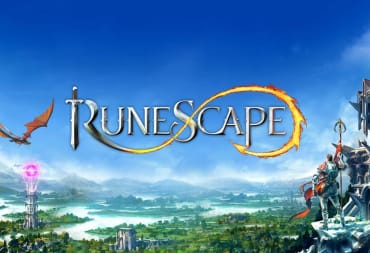In my earliest gaming days, I loved playing Runescape. Jagex's long-running fantasy MMO, while not as high profile as its peers, maintained a strong grip on me thanks to its mix of grand fantasy adventure and irreverent, witty comedy. It's an energy that is hard to replicate and has helped the game stand out even today. Runescape Kingdoms Shadow of Elvarg is the first major high-profile board game adaptation of the setting by Steamforged Games. One that does a fantastic job bringing the appeal and charm of Runescape, albeit with a few odd design flubs.
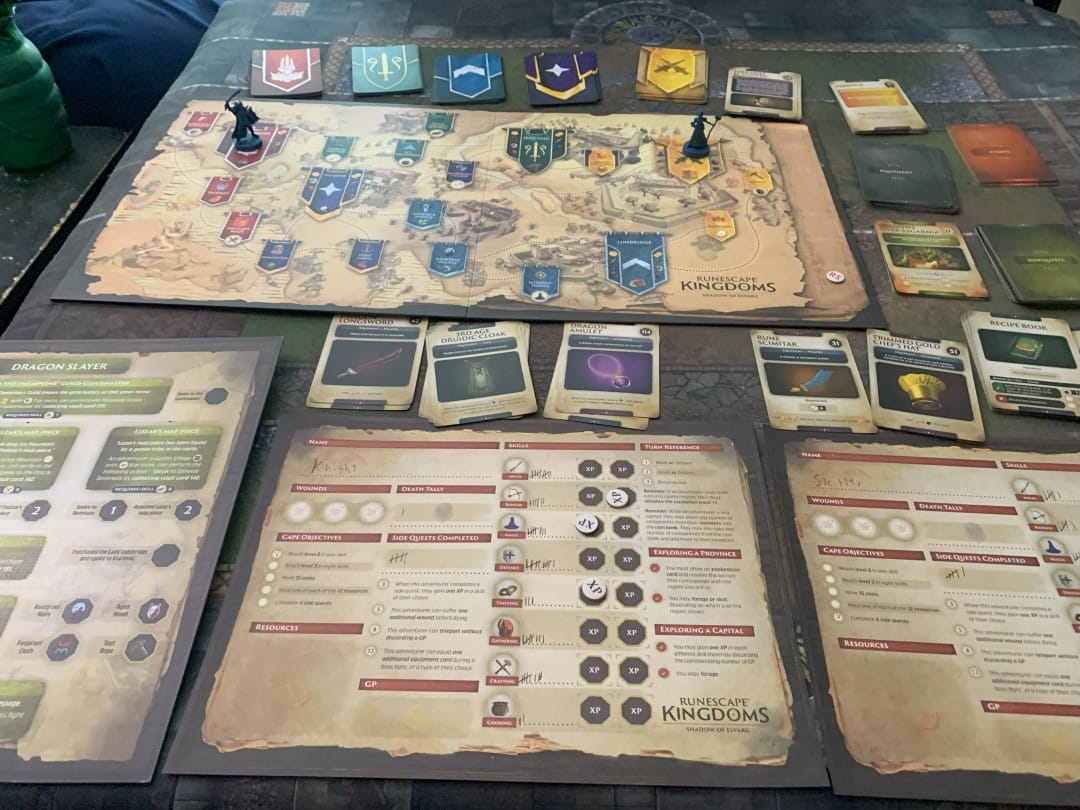
What is Runescape Kingdoms Shadow of Elvarg?
Runescape Kingdoms Shadow of Elvarg is a co-op narrative driven RPG-lite board game. 1-5 players take on the roles of adventurers in the world of Gielinor. The game has four overarching narrative campaigns, one where a dangerous monster threatens the land. The adventurers will need to explore the map, complete story objectives, gather resources, train skills, forge and upgrade armor and equipment, and complete sidequests if they have any chance of saving the land from devastation.
Once all four narrative campaigns are complete, the players get one of four endings based on choices they made, how many times their characters died, and how quick they were with stopping these major threats.
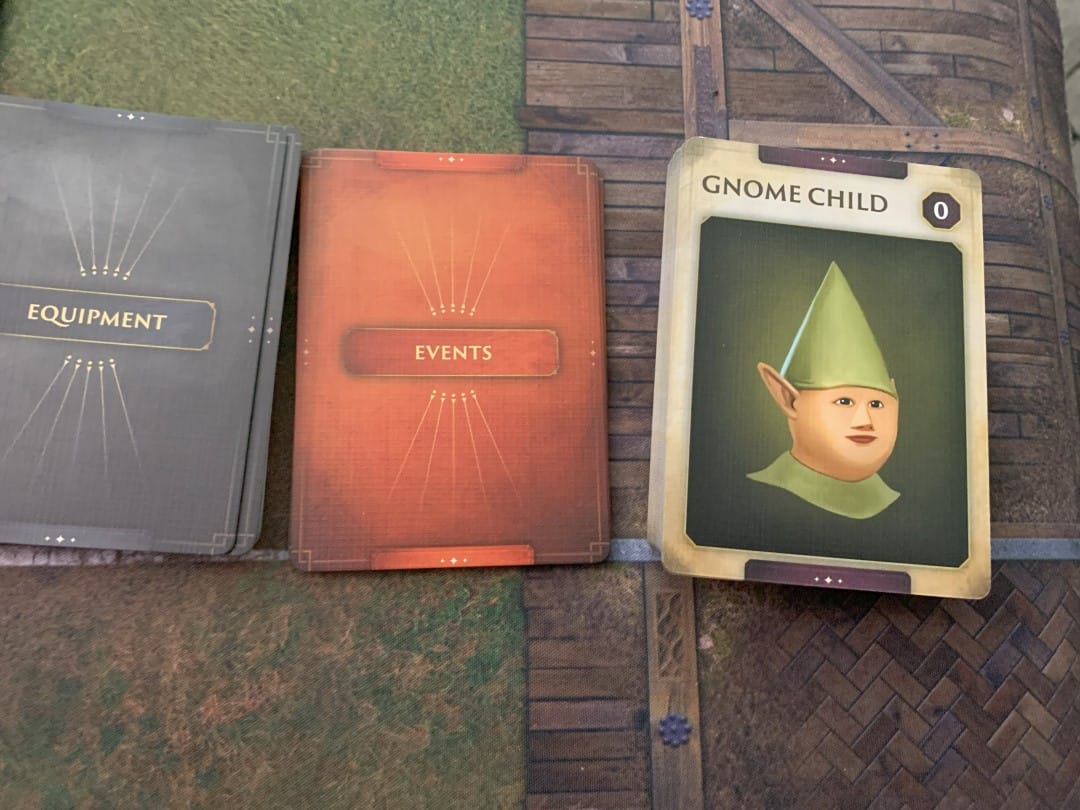
How Do You Play Runescape Kingdoms Shadow of Elvarg?
Runescape Kingdoms Shadow of Elvarg's gameplay is broken up into two distinct parts. The first is the exploration phase. This is where players take turns moving to different locations on the map, gather resource tokens, spend those tokens to train certain skills, and earn gold. Exploration is done with a handful of exploration decks packed with random events.
In addition, players can undertake sidequests, multi-step optional objectives with tempting bonus rewards. Lastly, players can progress the game's main campaign by completing objectives as displayed on the campaign board, which causes ongoing changes to the board via a narrative deck.
These improvements to your character sheet are marked with pen or pencil. The sheets are disposable. There are roughly 50 blank ones in the box.
Much like the Runescape MMO there are no defined character classes; any character can level up any skill. In addition, players have a clan bank, which they can fill with gold and resources they have collected. Not only does this encourage communication, it rewards players that can commit to engine-building. Having reserves can be a godsend in the late game.
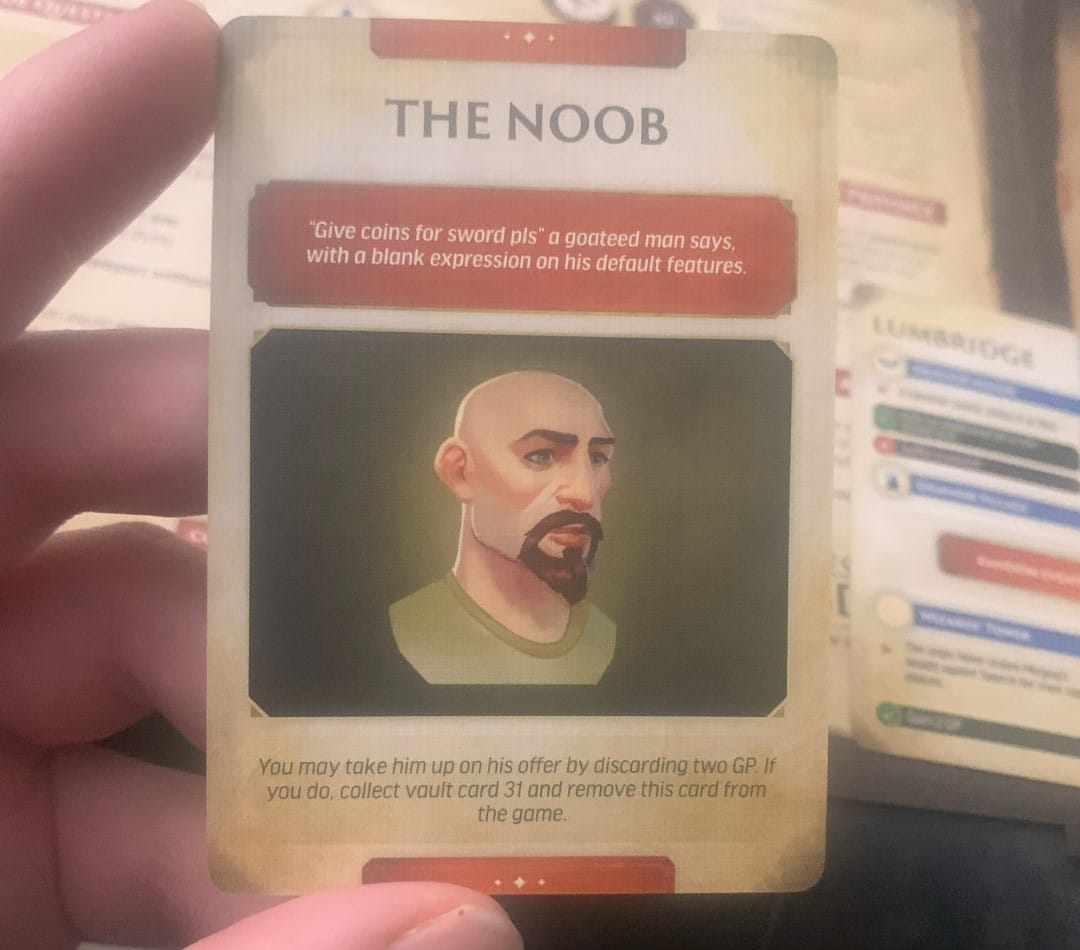
As for skill checks, they are resolved with a set of d10s. If your stat is under the requested skill level, you roll one. If it's equal you roll two. Finally, if you exceed the skill level you roll three. If you have a certain accessory or weapon connected to the skill in question, you can potentially roll another. You always have a chance to succeed, but failure could mean lost resources, time, or even character death.
Time is a factor in Runescape Kingdoms Shadow of Elvarg. The minute the game starts, two different factors are in play. One is an escalation track that goes up if you trigger certain events, die, or fail certain skill checks. If the escalation track reaches the top, a card from the campaign's escalation deck is revealed, which causes ongoing persistent penalties to the campaign. Skill test penalties, changes to the exploration deck, surprise combat encounters, the list goes on.
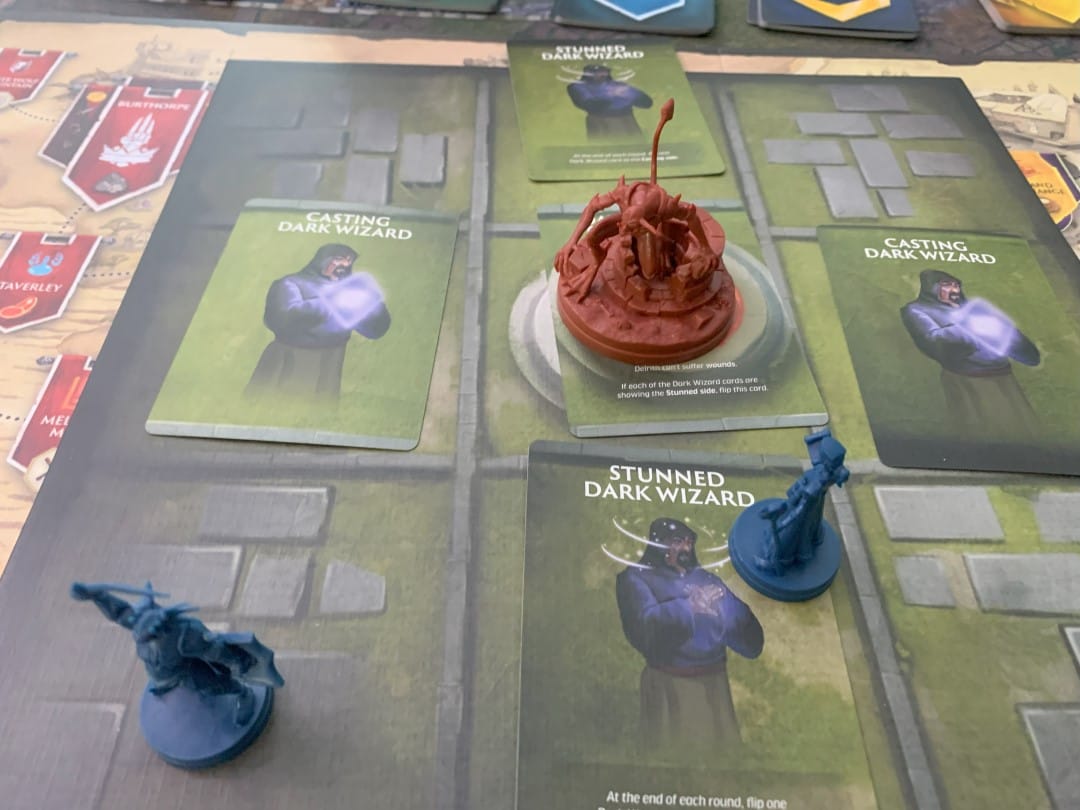
All of this build up and preparation is for the second part of a campaign for Runescape Kingdoms Shadow of Elvarg: the boss fight. This is where all players' miniatures, the boss miniature and several terrain cards are placed on a 3x3 grid. From here, initiative is determined by shuffling and drawing cards from the initiative deck and the boss' AI deck. Players take turns moving on the grid, manipulating the grid with certain skills, or attacking the boss. The fight ends when the entire party or the boss is defeated.
Overall, these boss fights are equal parts exciting and intense. They feel like the culmination of a raid or endgame encounter from the Runescape MMO with just the right board game twists. Party health is a shared resource, which cuts down on micromanagement. Boss behaviors and win conditions are varied: defeating Count Draynor requires you to crack open his coffin, successfully hitting Delrith with the Silverlight sword is a potential one-hit kill, etc.. Lastly, the grid has dynamic elements that react to boss behavior and player actions, which adds to the spectacle.
How Does Runescape Kingdoms Shadow of Elvarg Adapt The Source Material?
Fan service in Runescape Kingdoms Shadow of Elvarg is evident both in large and small ways. Quests and recurring events are peppered with references to inside jokes and supporting characters. The miniature sculpting and card artwork showcase the game's stylized, cartoonish aesthetic, and the narrative writing is both cheeky and grand.
The deep cuts even go to certain game pieces and rules. If a character dies, another player can try to convince Death to give back their stuff, which pokes fun at how in-universe Death seems to turn a blind eye to player characters respawning. Also, the vegetable resource tokens are cabbages: a winking nod to the Order of the Cabbage clan and the Golden Cabbage Goddess Brassica Prime.
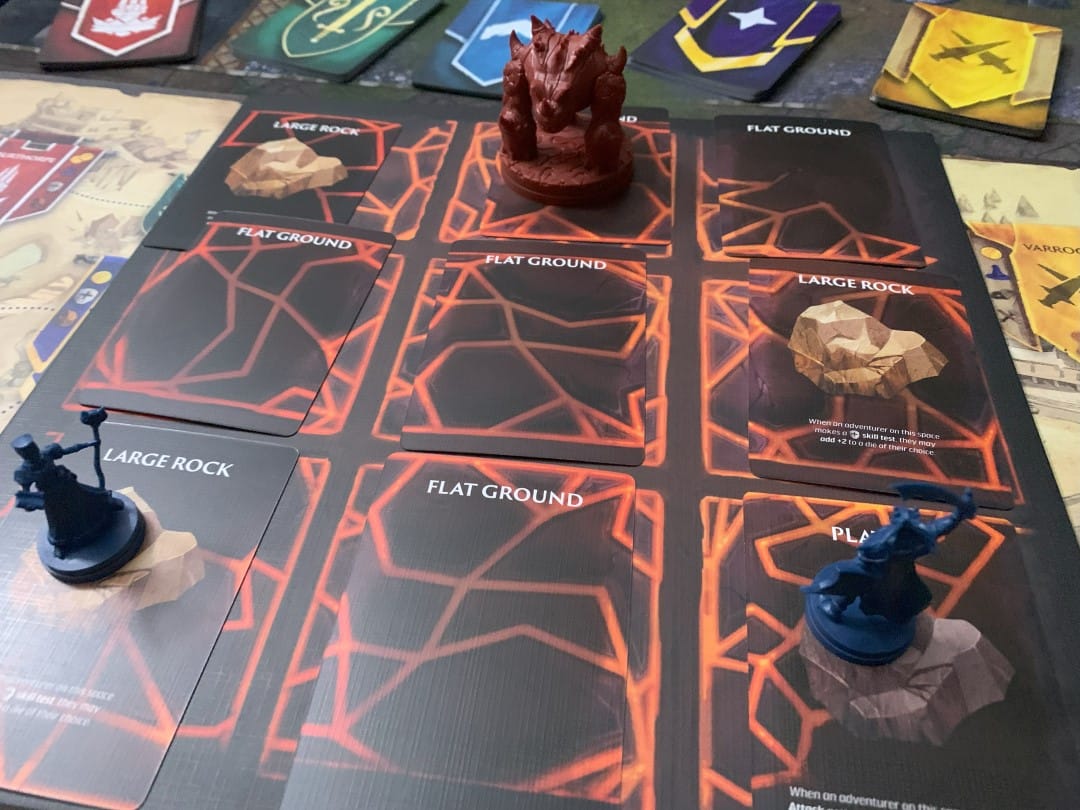
But the most impressive form of adaptation are the four main quests themselves. Three of them are adaptations of certain iconic quests: Vampyre Slayer, Demon Slayer, and Dragon Slayer respectively. These quests make a solid translation to a narrative board game, complete with unexpected twists and turns.
The fourth one, Flame Slayer, is a board game original. One that creates narrative around one of Runescape's most iconic endgame challenges, Jad, and a dangerous cult. Overall, the quest fits nicely in the game and provides a novel twist on confronting Jad.
The only real problems I have with Runescape Kingdoms Shadow of Elvarg are some inconsistencies with terms. The Equipment Deck is referred to as the Item Deck in some flavor text. In addition, the game's text refers to resources under two different categories but the booklet doesn't appear to specify this.
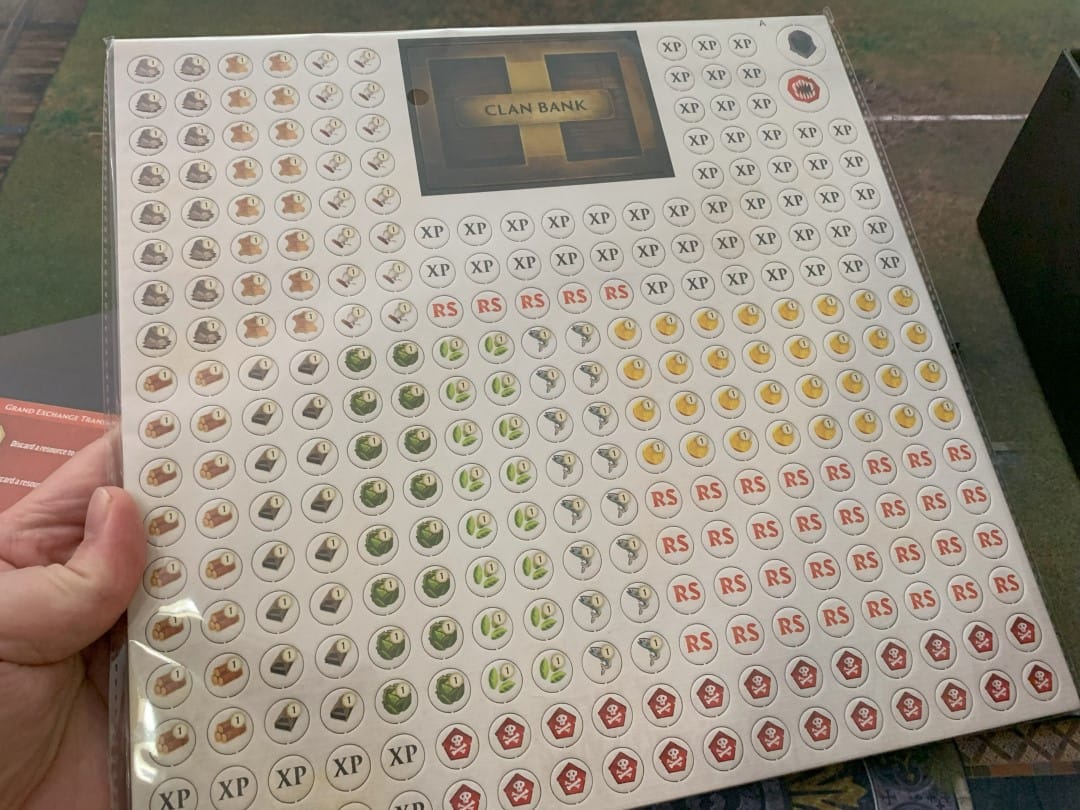
It must also be said that Runescape Kingdoms Shadow of Elvarg is a complex and large board game. Clean-up does take a while and can be a headache to set up again in between sessions. However, the box does provide several small plastic bags for tokens, which is handy.
Lastly, while the booklet does state that player's stats can go as high as 99, the level cap from the MMO, by the end of my campaign the highest stat all characters had was around 14. In addition, the highest level skill challenge plateau'd around 10. I hesitate to call this bad design since streamlining elements in adaptation is something this board game does well, but it is an odd case where fan service for its own sake leads to skewed expectations.
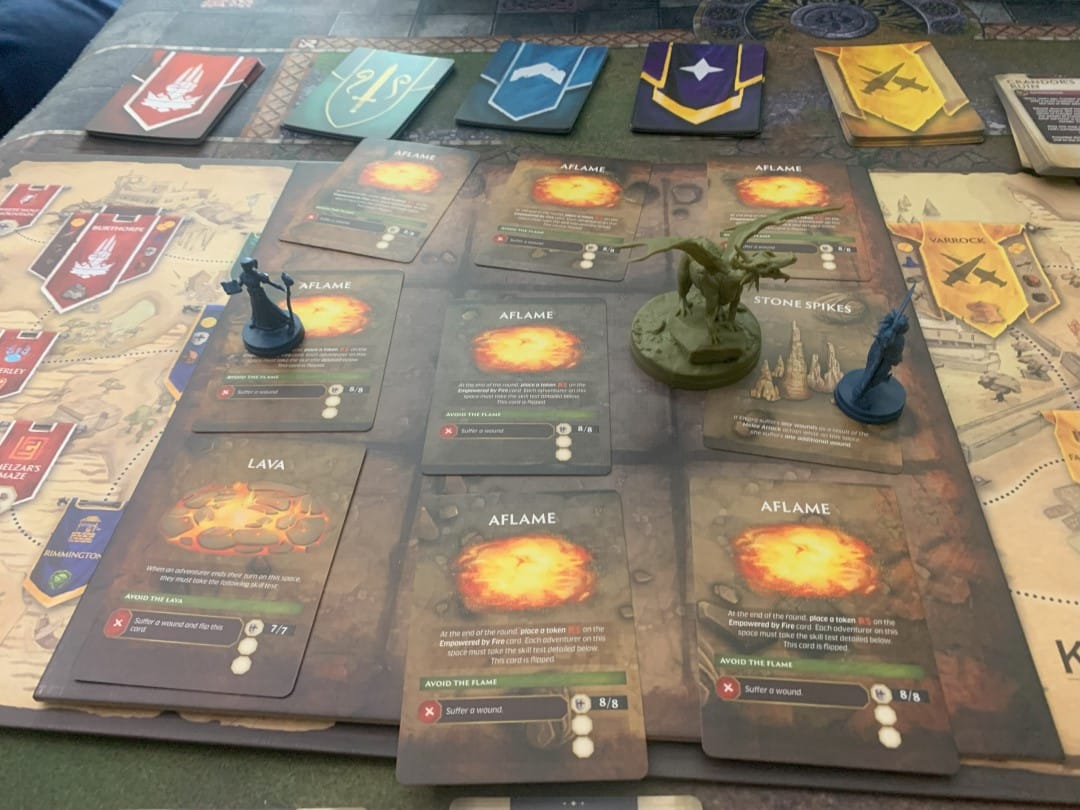
Should I Pick Up Runescape Kingdoms Shadow of Elvarg?
If you have any nostalgia for the world of Runescape or are looking for a novel twist on a co-op fantasy board game, then you need to pick up Runescape Kingdoms Shadow of Elvarg. Just know there may be some double takes when looking over some terms.
The copy of Runescape Kingdoms Shadow of Elvarg used in this review was provided by the publisher. The author took all screenshots during the process of review.
Review Summary
Have a tip, or want to point out something we missed? Leave a Comment or e-mail us at tips@techraptor.net
